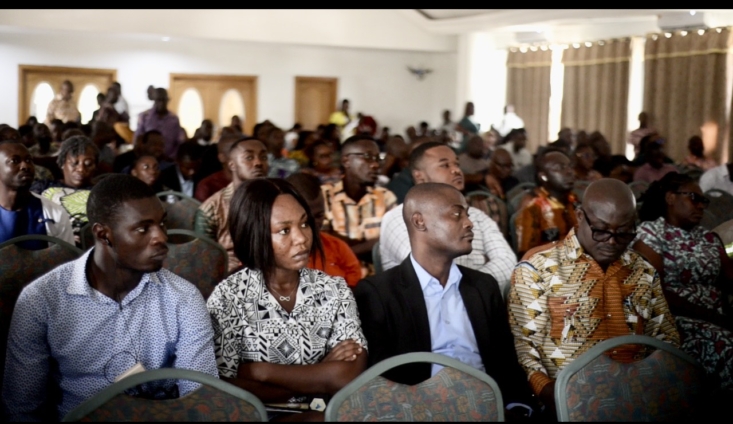About 15.2% of female adolescents in Ghana aged 15-19 have ever been pregnant, underscoring the prevalence of teenage motherhood.
The prevalence within the age range is almost one-fifth of the global prevalence.
The regional disparities are striking, with teenage pregnancy rates ranging from 6% in Greater Accra to 26% in the Savannah Region.
The alarming prevalence of teenage motherhood recorded a decline from 19% to 11% since 1988.
This was revealed at a zonal dissemination of the Ghana 2022 Demographic and Health Survey.
These statistics highlight a complex landscape of adolescent pregnancy and motherhood with significant regional variations.
The Ashanti region is the second highest with 24% of adolescent pregnancies.
The dissemination of the 2022 Demographic and Health Survey assembled health expects, district and assembly health executives to discuss the implications of the health survey numbers.
Head of the Social Statistics Section at the Ghana Statistical Service, Sarah Woode explained "It is not the best that within that age period we are having as many young women being pregnant."
"This is a worrying situation that policymakers should do something about,” she said.

The Ghana 2022 Demographic and Health Survey is a population-level survey designed to monitor and assess progress in the utilization and management of healthcare services across all 16 regions of the country.
The five-week dissemination exercise focused on data generated from 15 target areas including, child health, malaria, Infant and Child Mortality, HIV/AIDS and Health Insurance.
Other exploits include Marriage and Sexuality, Fertility, Family Planning, Household Water and Sanitation, Women's Empowerment, Domestic Violence and Agency, Consent and Coercion.
Director of Regional Offices of the Ghana Statistical Service, Emmanuel George Osei, says the report will provide a vital source of information for the Ministry of Health, enabling the measurement of outcomes and impacts of health programs.

“Health facilities use our data a lot. This guides them in their policy evaluation and formulation regarding health issues in the country. The Ghana health service and the health ministry can use this in the light as well,” he said.
Latest Stories
-
Government urged to extend validation for payment of trainee nurses and midwives’ allowances
5 minutes -
Afreximbank Chief Economist urges Ghana to lead Africa’s trade agenda ahead of IATF 2025
10 minutes -
Foreign Minister engages Israeli and Iranian Ambassadors over Middle East conflict
25 minutes -
Ghana evacuates some citizens from Iran amid Middle East tensions
29 minutes -
Bryan Acheampong poised to contest NPP Flagbearer race – Mpraeso MP confirms
51 minutes -
Green Palette stakeholders conference sparks national dialogue on plastic pollution and sustainable action
1 hour -
Playing with Abu Francis is not about competition – Lawrence Agyekum
2 hours -
Desmond Ofei texted me to inform me of maiden Black Stars call-up – Lawrence Agyekum
2 hours -
Today’s Front pages :Friday , June 20, 2025
2 hours -
1st mini-clinic of Ecobank-JoyNews Habitat Fair starts today
2 hours -
GNPC reaffirms strategic role in West Africa’s energy future
3 hours -
Ghana receives first HPV Vaccine shipment to prevent cervical cancer among girls
3 hours -
King Mswati of Eswatini to pay a four-day state visit to Ghana
3 hours -
It’s regrettable Ablekuma North remains without an MP – NPP
3 hours -
Fraudulent scheme at Ghana’s mission in Washington D.C. rakes in $4.8m annually – Ablakwa
3 hours

